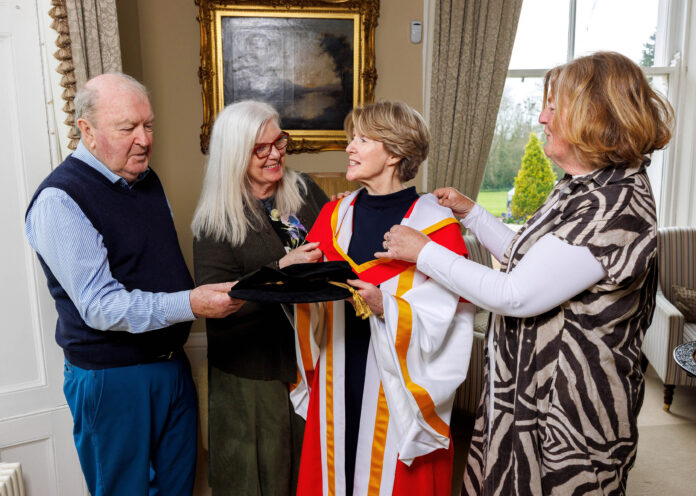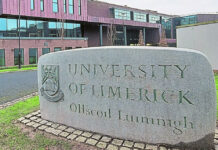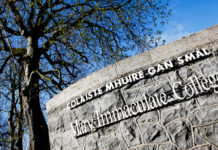
AN IRISH music idol was honoured at University of Limerick (UL) when he received an honorary doctorate from the university posthumously.
Michael (Mick) Moloney, who passed away in 2022, was celebrated with an honorary doctorate of letters at UL to mark his lifelong career as an academic, teacher, social activist and, for much of his life, one of the most influential Irish musicians in the United States.
The Limerick-born musician had a longstanding relationship with UL’s Irish World Academy of Music and Dance, where the ceremony took place, with his sisters Violet, Nanette, and Kathleen and his brother Dermot in attendance.
The crowd of gathered guests, family, friends, and former colleagues of the late musician heard how he had been instrumental in the growth and development of the Irish World Academy of Dance and Music since it first opened its doors 30 years ago – and where he embraced many roles as visiting lecturer, performer, consultant, external examiner and supervisor and, finally, adjunct professor.
He also pioneered the 2007 Banjaxed concert, which united leading Irish banjo players at UL’s campus.
A renowned multi-instrumentalist (best known for playing the guitar, mandolin, and banjo), Mr Moloney was named best tenor banjo player in America four times by FRETS magazine, and in 1999, he was named traditionalist of the year by the Irish Echo.
In 2013, the Limerick man received the Presidential Distinguished Services Award from the President of Ireland, Michael D Higgins, and in 2014, he received a TG4 Gradam Ceoil Award for his outstanding contribution to traditional music.
Mick studied economics in University College Dublin before becoming a major figure in the ballad-group movement of the 1960s, joining The Johnstons with fellow musician Paul Brady.
He played a seminal role in the revival of Irish music in America, after moving there in 1973 and becoming one of only 10 Irish musicians resident in the US to have received the National Heritage Fellowship Award, presented to him by Hilary Clinton in 1999.
As a young man, he worked with immigrant communities in London, and, over the last two decades of his life, he worked in Vietnam, Cuba, and Myanmar, and in refugee camps on the Thai-Burmese border, where he volunteered as a music teacher for children with HIV at the Mercy Centre in Bangkok.
A statement from UL said that Mr Moloney’s “immense legacy as a musician, educator, and social justice activist positions him as a global leader in inclusive music practices, a legacy that continues to grow through his students and creative collaborators around the world”.









